Abstract thinking: what is it and how to develop it?
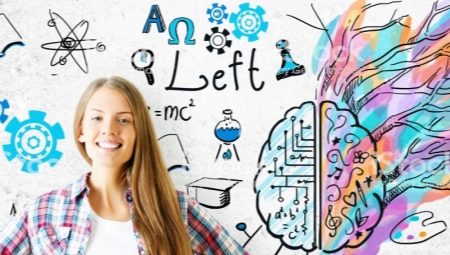
Talking, reading, writing, counting - all this a person could not do if he did not have developed abstract thinking. It was it that helped create the alphabet, put words out of letters, come up with numbers. It is extremely important in learning, but even in adulthood, there is nowhere without it.
What it is?
Abstract thinking is considered the highest form of the thought process. Smells, sounds, tastes, images, tactile sensations - in order to understand their essence, a person must certainly think. Our brain "digests" any information and stores it in the head in the form of certain "files" or clusters. Abstraction is based on them. In simple words, this can be defined as follows: in order to think abstractly, a person uses the knowledge gained once as a basis, and thinks out the rest with the help of his own imagination.
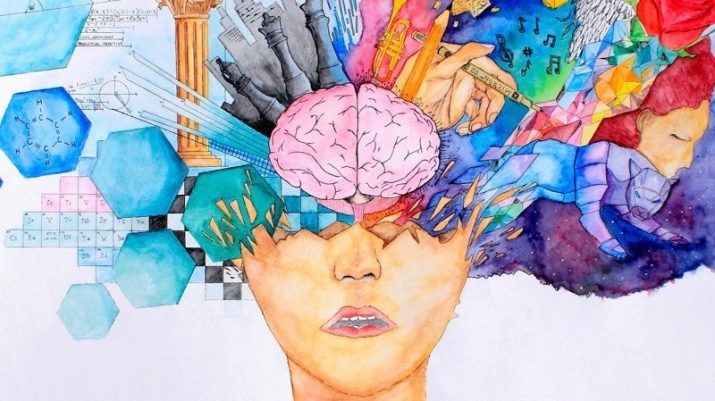
With such a complex, but rather accurate definition, explanations are indispensable. Let's see how this works with a specific example. You see a certain type on the bench who, in the midst of the working day, is resting with a bottle of foam. The first thing that comes to mind is that this is a parasite prone to alcoholism. The features of abstract thinking help us to look at it differently.
Perhaps a person has the first day of vacation or his day off falls on weekdays, and he only drinks non-alcoholic beer and only to refresh himself, because it is hot outside. All this may well be exactly this way or somehow differently.
A person does not have to be an alcoholic and a parasite. The view of this or that event can be different. It all depends on how much our brain is able to be distracted from stereotypes.
An apparatus is a person whose brain does not accept any thoughts that contradict his first and, as it seems to him, the only correct impression of what is happening. Often this leads to the fact that people drive themselves into an emotional and life dead end. They are not looking for a way out of it, because they are sure that they are following a precisely adjusted path.

Abstract thinking helps us to act logically. His main weapon is the word. This is the main difference between it and that of animals. Another name for this type of thinking is conceptual, that is, a person puts his concepts into a kind of logical chain, and then expresses his thoughts. Moreover, for this it is not necessary to enter into a conversation with someone - it can also be a dialogue with oneself.
Sometimes it is like the babbling of a small child - "oh, dog, I'm afraid." But more often it is a more detailed text, which over the years and as we gain life experience, it becomes more and more colorful and diverse.
With age, a person with developed abstract thinking becomes less categorical. He admits several points of view on the same issue, knows how to recognize the validity of the arguments of opponents, admits the likelihood of his own wrongness in certain issues. All this happens due to the evolution of the brain of each particular individual.

Formation
The first "pillars" of abstract thinking appear in a person when he just begins to see and understand what is happening around him. That is, the foundations are laid at the age when the child has a conscious look - after the end of the neonatal period. He begins to hear better, perceive visual images more clearly, distinguish well between his mother's voice and others, and understand a certain difference between warmth and cold.
Experts have decomposed the formation of abstract thinking into three main stages.
- Straight - otherwise it can be called the folk aphorism "what I see, I sing." At the initial stage, the brain perceives only information related to specific objects. The baby sees a bottle of milk, which means it's time to eat, toys for him are not divided into cats, dogs and other animals - this is just a thing that you can hold in your hands. No reflection is possible at this stage.
- First images - this is how figurative thinking appears. The process of forming the imagination begins. The child is able to generalize and organize some things. But so far his experience is not enough for imaginative thinking to work in full force.
- Abstraction - only when a person reaches such an age at which he can allow his thoughts to go beyond what he saw here and now, he gets abstract thinking at his disposal. His brain activity is already based not only on what is in front of his eyes, but also on his own concepts and ideas about this or that phenomenon.
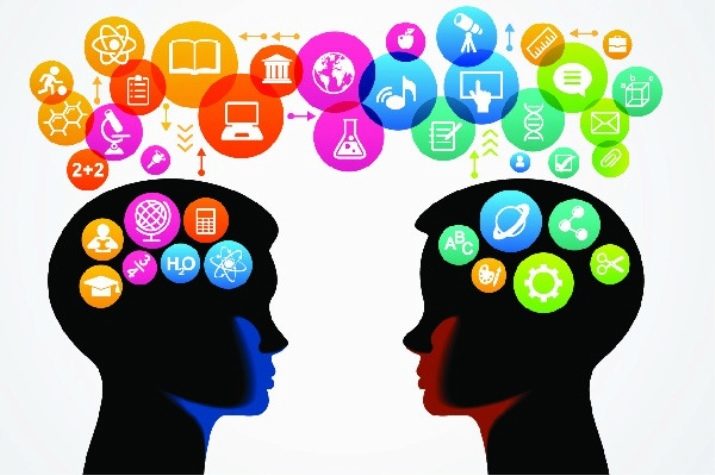
The main signs
Everyone possesses abstract thinking to one degree or another. But it is most strongly developed in people who work with some intangible concepts. It was abstract-symbolic thinking that brought the alphabet into our life. After all, what is a letter? It is impossible to touch it. But by putting letters into words, we form our point of view.
Another example from life is the emergence of numbers. Numbers also do not exist in the form of objects. They were invented in order to make it easier to express yourself. In fact, the "seven" is seven units. And only abstract thinking turned them into a concrete sign.
The other part is abstract spatial thinking. No one knows exactly what the surface of other planets looks like, but anyone can imagine it based on the creation of abstraction, on fantasy, seen earlier films, paintings, read books of science fiction writers.
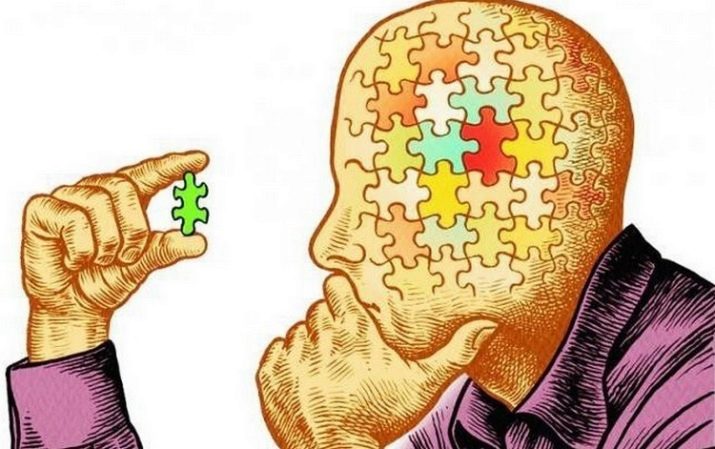
Properties
Abstract thinking is multifaceted. It branches in several directions in our head. Usually, experts distinguish six of its properties.
- The ability to idealize. It allows you to hide flaws, "adjust" what you see to what you want.
- Isolating function. It selects certain elements from the total mass, on which the emphasis is made in the future.
- Primitive sensory ability helps to cut off unnecessary properties and highlight the necessary ones.
- Constructivization function helps to transform obscure things into clear forms.
- Ability to generalize helps to remove some particular features and consider an object or event based on its general characteristics.
- Ability to create actual infinity turns endless elements or phenomena into final ones.
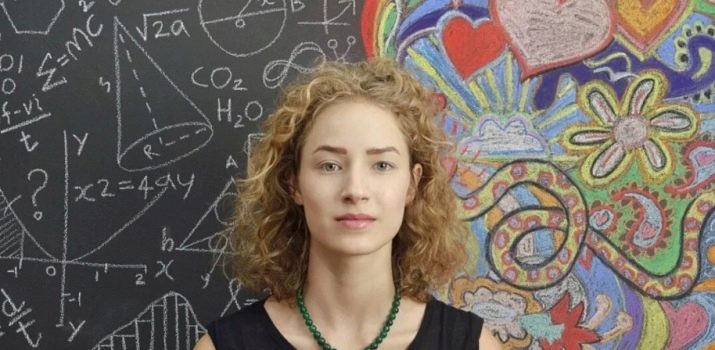
Instruments
As mentioned earlier, the main tool of abstract thinking is the word. It is speech that helps us to build our thoughts logically and consistently. If you are tormented by a question, try to say it out loud.
If there is no interlocutor, talk to your own reflection in the mirror. In most cases, a solution is quickly found in this way.
By the way, in cases where you are talking to yourself, it can be even more effective.... First of all, no one argues with you, does not interrupt, distracting you from your thoughts. And in this case it is not necessary to choose words. The way the thought process proceeds depends on how clearly a person can formulate his thoughts.
Abstract thinking also called inner speech. If it is not developed, then thinking, and ultimately finding a solution to the problem, is much more difficult than if the vocabulary is large and the ability to use it is at a high level.

Types of abstractions
There are two kinds of thinking - induction and deduction. By the way, contrary to popular belief that one of the most famous literary detectives Sherlock Holmes used only the second to solve crimes, experts believe that he was practically fluent in both, and even more often resorted to the help of the former.
Let's figure out how it works. Let's take a few introductory notes: first-grader Ilya has not been going to school since June, tenth-grader Marina stopped attending lessons with the onset of summer, teacher Lidia Ivanovna has been planting strawberries in the country all summer. The induction method will tell us that the school is closed in summer. However, this is not always true.
If we turn to deduction, then we conclude that schoolchildren have holidays in the summer. And in this case, this will be a more accurate conclusion, since there is usually a summer camp in an educational institution, children undergo practical training, and graduates still take exams. And this requires them to attend school even during the holidays.
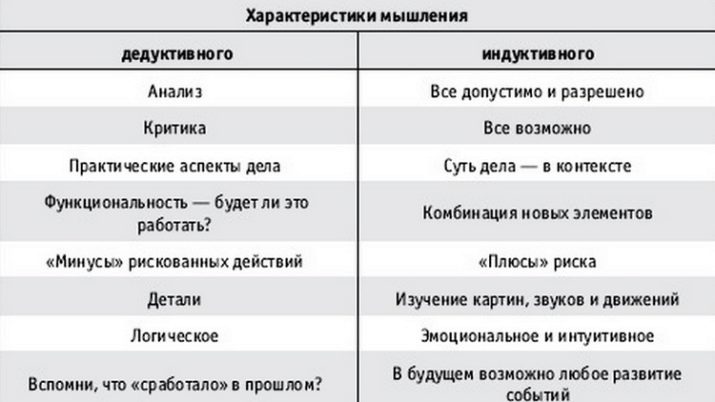
What forms are there?
We may never see the ocean in our life, but we can clearly imagine it in all its details - noise, waves, sounds. We may never fly to the moon, but we perfectly draw its surface with craters in our imagination. We don't have to touch the ice in order to understand that it is cold. Each such skill belongs to a certain form of abstract thinking.
Concept
It forms different objects and objects into a certain image according to the same characteristics. For example, cars are large and small, domestically produced and foreign cars, convertibles and trucks, of different colors and with a different number of seats in the cabin, but they all have wheels, a steering wheel, seats for seating, they are designed for transportation, as unites them into one name - the car.
Another example from the animal world. Any child knows that a cat is a fluffy, meowing creature with four legs, a mustache and ears. The fact that they come in different colors and are divided into breeds does not prevent us from combining them into a general category.
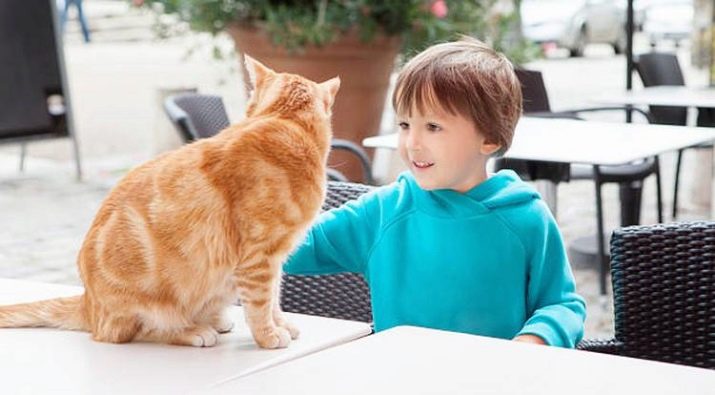
Judgment
It appears when we need to assess some creature, object or phenomenon. It can be simple or complex. Birds sing - belongs to the first species.The birds are singing because it has become warm - the second species.
Judgments can also be true and false. It all depends on how much we want to understand the situation, and on how much we are personally interested in it.
For example, it is difficult for a mother to see the shortcomings of her own child, he is the most beautiful and intelligent for her. But a teacher in a school will quickly find gaps in the knowledge of even the most outstanding student.
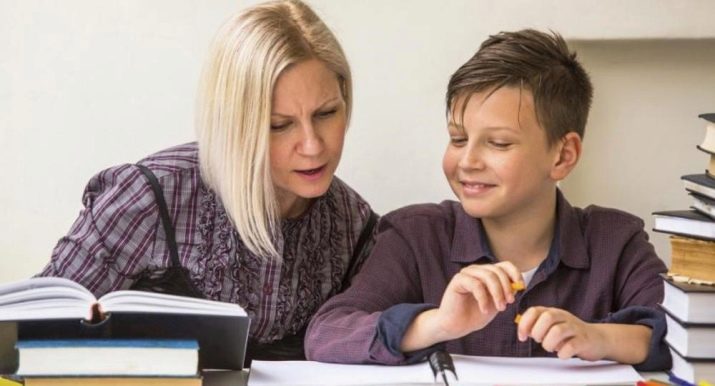
Inference
It combines several judgments from which a conclusion is made. Most often they lead from the general to the particular. For example: winter is a cold season, soon December, which means it will become cold, it's time to get warm clothes. Or: women are the beautiful half of humanity, Irina is a woman, which means that she is beautiful.
The correctness of the conclusions that we draw, again, depends on our own preferences, as well as on how developed our horizons are. And it, like abstract thinking, is quite possible to develop.

How to develop?
Ability to think abstractly is inherent in each of us since childhood. It is at a young age that a person tends to dream and fantasize more. Any child can easily compose a story. In school, abstract thinking helps us understand subjects like geometry, physics or chemistry. It is it that "sees" what is impossible to see with the eyes or touch with your hands. Philosophers, writers, journalists - without abstract thinking these professions simply would not exist.
In everyday life, we also often resort to it when we make plans, try to solve a problem, help the child with homework. This list can be supplemented indefinitely. That's why the importance of developing abstract thinking is difficult to overestimate. And its level primarily depends on our ability to express ourselves. Accordingly, you need to develop speech.
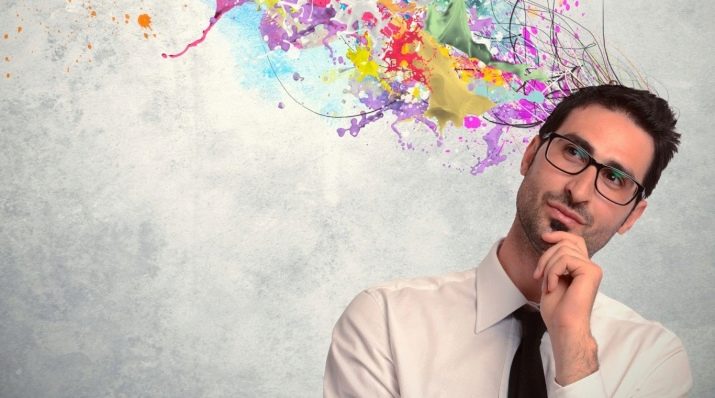
To learn the art of public speaking to the fullest is an achievement that not everyone can master. But anyone can expand their vocabulary, learn to use words without breaking the rules of their native language, and express thoughts clearly. They, in turn, will respond in kind, that is, they will become clearer.
Here are some exercises to help you move from words to deeds and vice versa.
- The obvious and the probable. Take a piece of paper and write a common belief on it. For example, "A seaside vacation is the best vacation." Now come up with a rebuttal to this. For example, “Baikal is much more interesting,” “the air is cleaner in the mountains,” and so on.
The more counterarguments you can find, the better. The next step is to refute what proved the implausibility of the first judgment. “There are no waves on Lake Baikal”, “it's hard to breathe in the mountains”. Thus, you must prove the evidence of the originally stated postulate.
- Capital letters... This exercise can be good fun in a company, for example, while waiting for the plane or while traveling on the train. Designate a combination of any 3-4 letters. The task of the participants is to turn them into acronyms. For example, SKB - "Union of communal outlaws", "Combined combiner brigades", "Team of lullabies". So you not only make your brain work on finding new phrases, but also diversify your leisure time.
- We live by concepts... There are many concepts in our life that cannot be touched. Happiness, beauty (it is different for everyone), love, anger, hatred. Choose one of them. Give it a definition in the simplest terms.
Find synonyms for this word, the more the better. Come up with a symbol for this concept: a specific drawing, a set of characters similar to hieroglyphs, a drawing or a diagram - it doesn't matter. After you have mastered this common human phenomenon, tackle more complex concepts - reference, validity, ambivalence.So you will not only learn new words, but also become better to understand their true meaning, respectively, and it will become much easier for you to communicate even with the most educated and "savvy" people. And the brain will produce more and more brilliant ideas.
- "We will build a new world." Get into a comfortable position, close your eyes. This exercise is similar to a meditation session. Remember everything that happened to you during the day. People with whom you communicated or just saw, events that happened.
The task is to reproduce everything in detail. Who was wearing what, what was the expression on the face of the interlocutor, how the room smelled, what kind of music was played. As soon as the picture is assembled, you need to make transformations into it. Give people different emotions and characteristics: kindness, anger, fun, laziness. "Refine" the room in which everything happened. Re-paint the walls in your imagination, change furniture, do whatever your imagination suggests. Feel free to experiment. This "repair" is not difficult to fix, but your imagination will develop such an exercise, no doubt.


Particular attention should be paid to the development of abstract thinking in children. This should be done from an early age. First of all, read more to your baby, even if it seems to you that he does not understand anything. Sounds, words, intonations - all this will remain in his head and will be useful in the future. Give him creative freedom. To do this, use these exercises.
- Draw a part of an object or creature on a piece of paper.... The task of a preschooler or schoolchild is to complete the image. Don't be discouraged if your painted cat has a doggy tail or wings. Here it is important for the child not to guess your plan, but to show resourcefulness.
- Play games like Cities. It is not necessary to start right away with the names of settlements. Adapt this activity to your child's age. First, use colors, names of animals, fruits, and so on.
- Sand painting, which has gained popularity not so long ago, is also a great way to develop abstract thinking. The child can depict any images and immediately change them. Invite your toddler to try this at least once. But, of course, after he learns to make "Easter cakes" in the sandbox and crawls out of it due to his age.
- Home puppet theater - entertainment accessible to everyone. In addition, now you can absolutely inexpensively buy all the necessary props for him. You can do everything for the presentation with your own hands. Together with the child, create images and costumes of the heroes, their character. Arrange performances at family gatherings and organize backyard parties.
- Puzzles, mosaic, constructor - all this will also help to develop abstract thinking of your baby. Just don't think that after two sessions he will begin to assemble a picture of 200 elements on his own, the development of abstract thinking is a long way. So be patient.
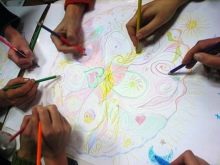


In addition to all of the above, for the development of abstract thinking, you can use the "old-fashioned" methods. We boldly include crosswords, scanwords, puzzles, board games among them. They will do the best for the intellect.
And do not be afraid to say everything that you think, if not in public, then at least being alone with yourself. Eloquence is a clear sign of a clear mind.
Therefore, let's communicate more often and more interestingly on a variety of topics, share with each other new information, impressions about films, books, performances, trips... This will be useful for both the narrator and the listener - new information will enrich his abstract experience.









